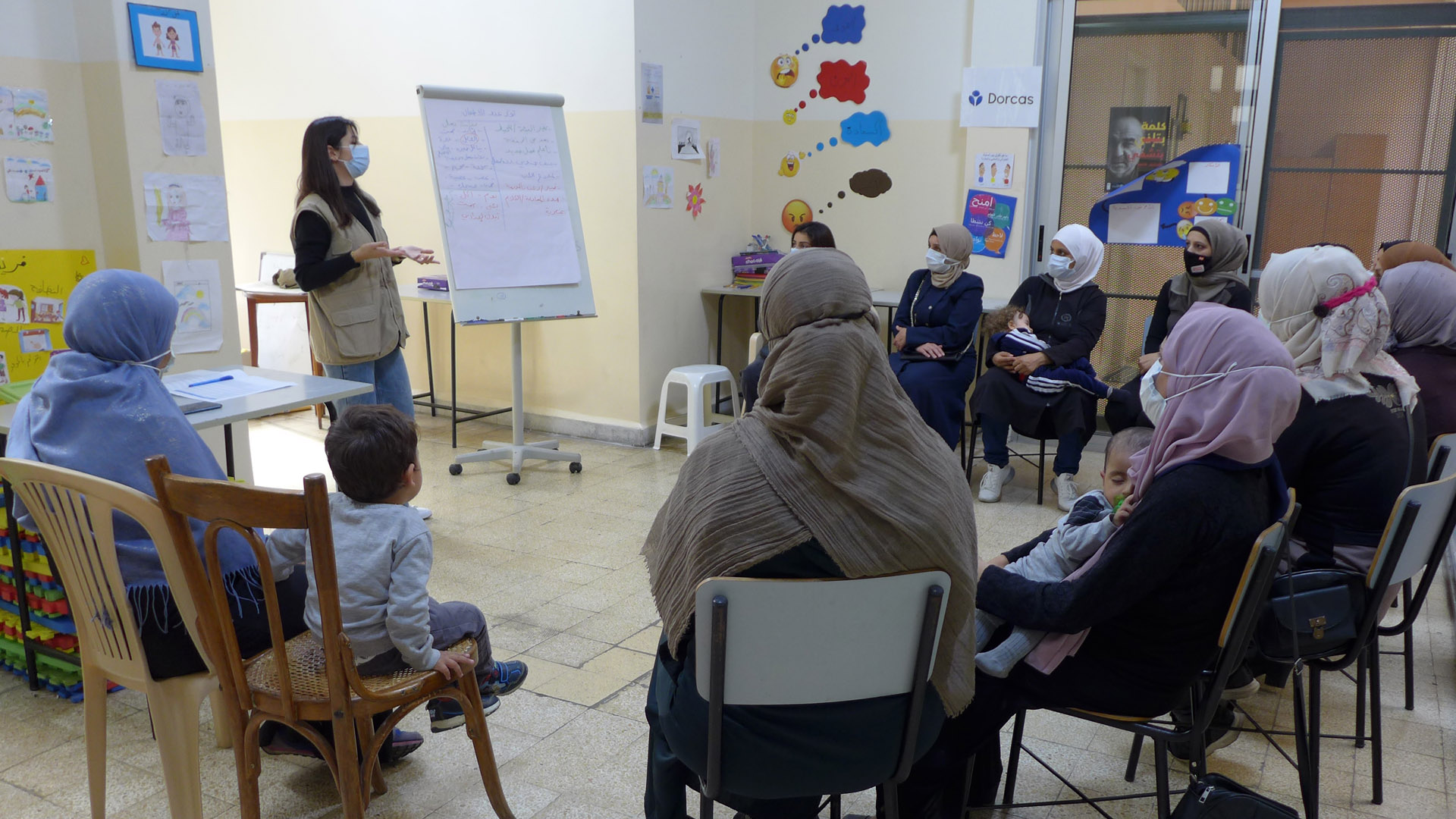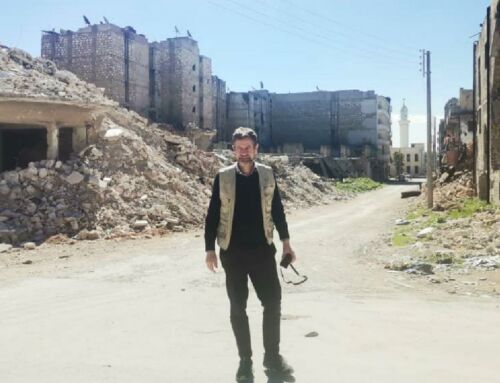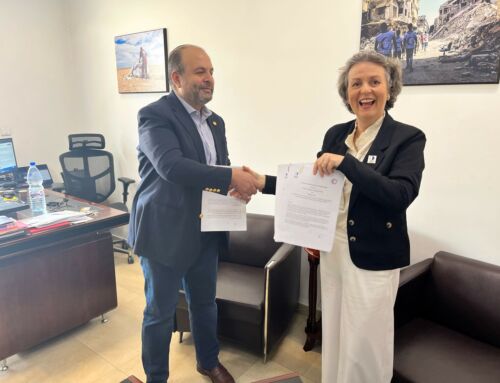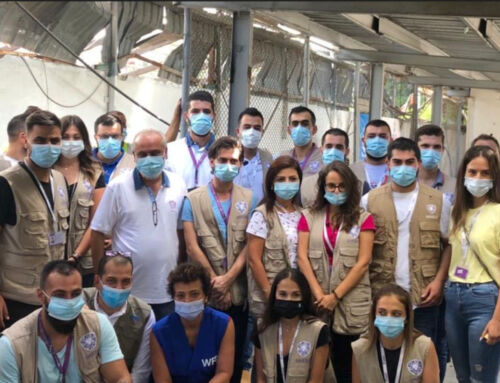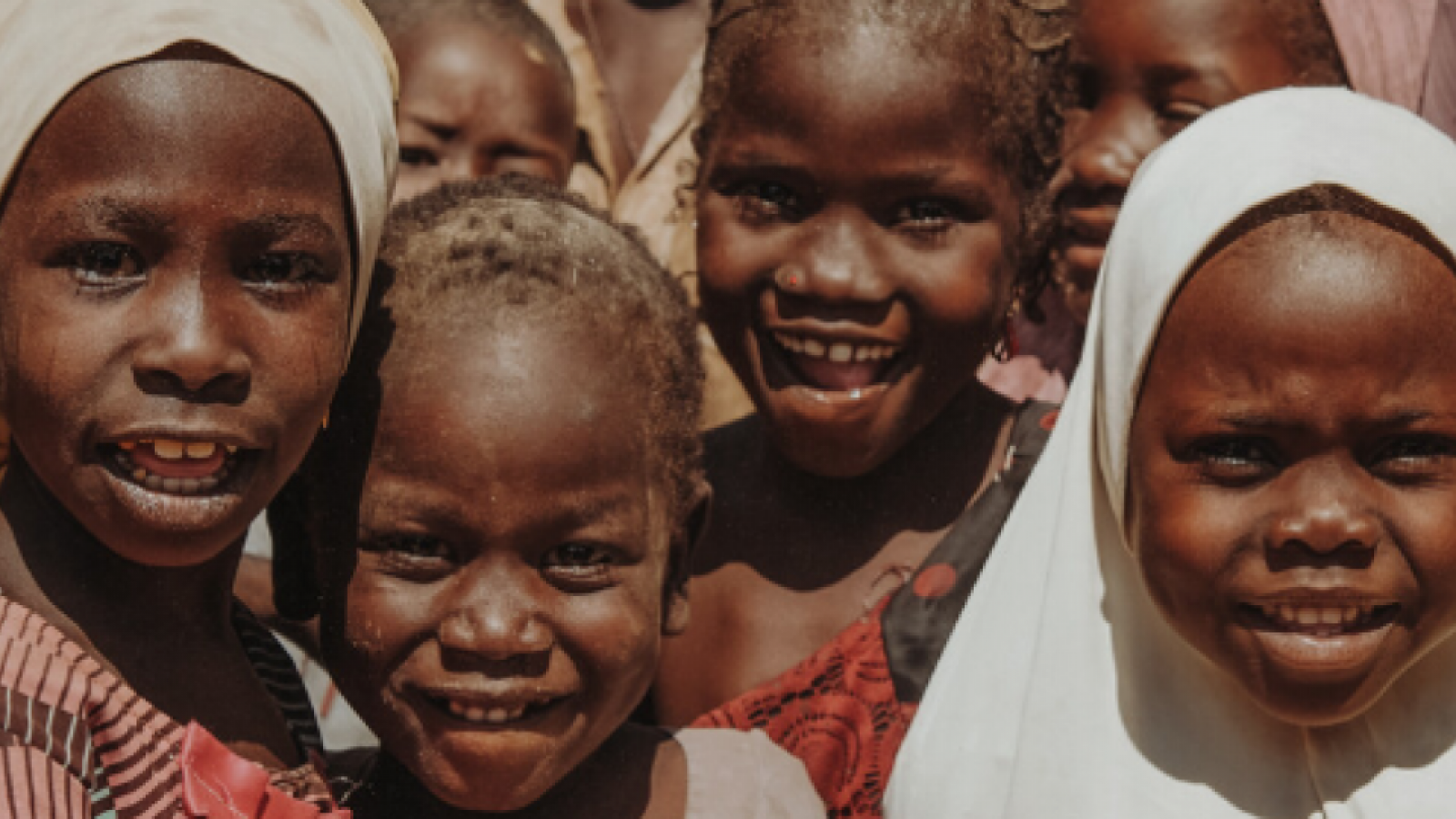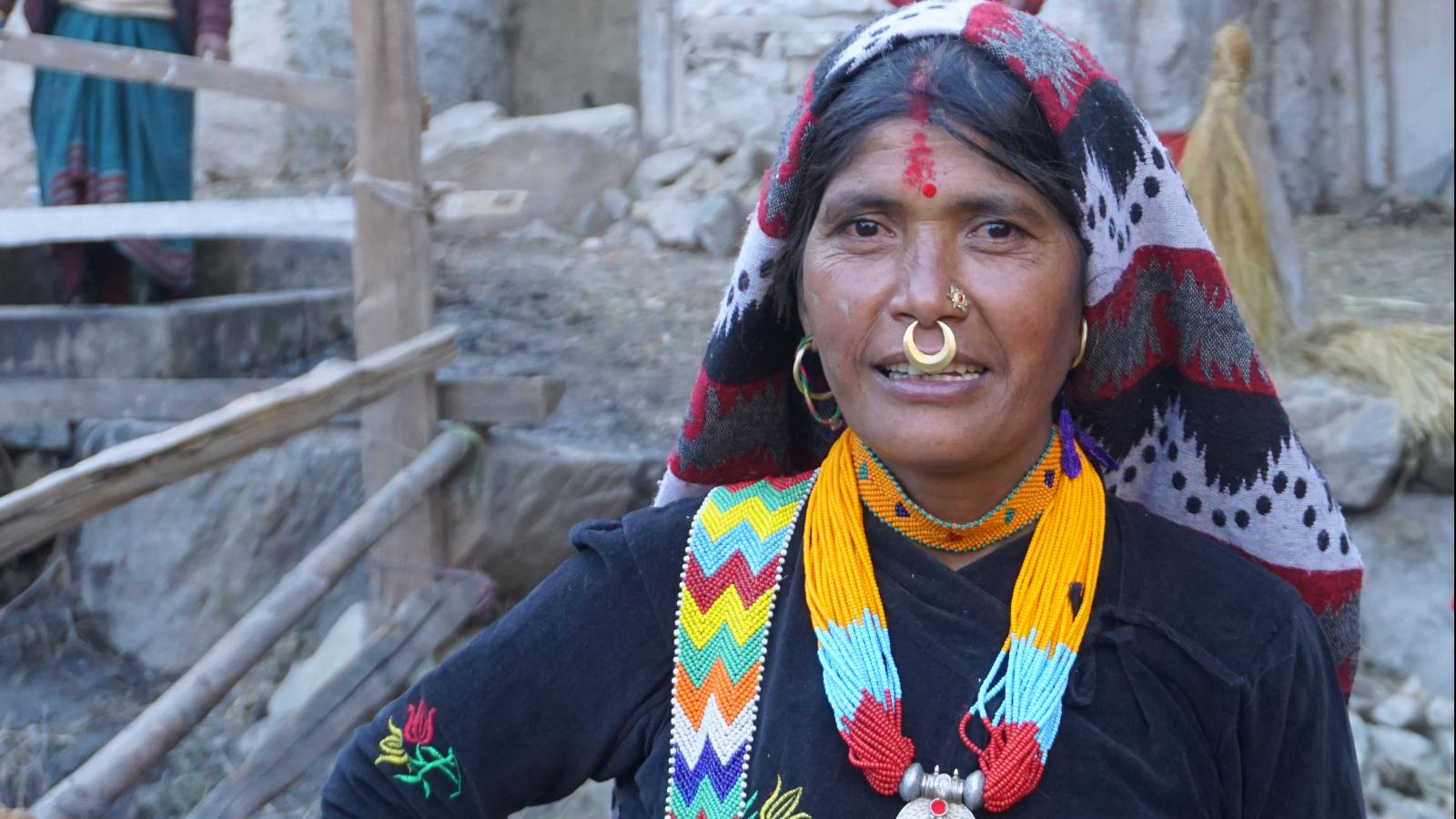Joohi Haleem from Mission East has just returned from a visit to Lebanon, where she, among other things visited a camp where Syrian refugee families have lived for 10 years. They are now being helped to grow vegetables that can increase families’ health and energy.
Mission East’s program manager Joohi Haleem has just returned from a 10-day trip to Lebanon, where she oversaw Mission East’s projects with program director Alexander Davey.
Joohi Haleem is program manager of Mission East’s aid programs in Nepal, Syria, Lebanon, and now she had the opportunity to see for herself the need in crisis-stricken Lebanon and meet both refugees and host families who keep up the courage and do everything to survive.
Traveling in Lebanon was a bittersweet experience. On one side, the country is lively and dynamic and the people are very hospitable and welcoming. But when you scratch the surface, you find that the crisis is a real reality.
– Every Lebanese person I ate with usually started praising the food, but would so quickly complain that it is not as varied and nutritious as before. “You do not know what Lebanon was like before. It has become much, much worse,” they said.
The pound loses value and prices rise
The country’s economy is plummeting. Just the 10 days that Joohi and Alexander visited the country, the Lebanese pound was devalued, so a US dollar at the unofficial exchange rate cost 23,000 pounds when they arrived, and had risen to 26,000 when they left the country 10 days later.
The economic downturn is having a huge impact on the population’s finances, says Joohi Haleem.
– I was told that a month’s use of fuel costs half a month’s salary. Wages have stagnated while prices are rising day by day. Many Lebanese families survive only because they have family abroad who send money home. They’re people’s lifeline right now.
But if the Lebanese are having a hard time, the situation is even worse for the 200.000 Palestinian refugees and the one and a half million Syrian refugees in the country.
Interim refugee camp made the biggest impression
Joohi Haleem managed to visit two of the three centers that Mission East runs together with the Dutch aid organization Dorcas.
– Here we support projects that protect women and activate them by sewing protective masks against Corona infection, while we teach them skills that help them cope in life, she says.
But it was the visit to a small “refugee camp”, where a private landowner has rented out a plot of land to 20 Syrian refugee families, that made the biggest impression.
– Here they have lived under tarpaulins and interim shelters for 10 years. Many of them have fled the Syrian city of Idlib, which is the front line in the fight between Islamic State and Syrian government militias. They cannot return even if they want to. Idlib is a battle zone right now, says Joohi.
Grateful for the help from Mission East
Mission East supports the 120 Syrian refugees, 20 families, and teach life skills, nutrition and cultivation of kitchen gardens.
The prices of vegetables have risen explosively. By growing their own vegetables, it helps both the economy and the nutrition, says Joohi Haleem, who also met hope in the refugee camp. But it is a hope against all odds.
– They really try to get the best out of everything and it’s clean and tidy where they live. And they are grateful for the help they receive from Dorcas and Mission East.
– But tensions between host communities and refugees are rising – and you can really understand that. Lebanon has been incredibly hospitable for many years. But now the cup is about to be full. There is a struggle for resources. Under Lebanese law, Syrian refugees are only allowed to work in three sectors: agriculture, construction and waste collection. The children are only allowed to go to school in the afternoon when the Lebanese children are finished. Lebanese families are increasingly resistant to the idea of their children attending school or trainings at the same time as Syrian refugee children, a sign of growing tension and stress.
Garden project is a bright spot in a sad everyday life
How do you feel after visiting the small refugee camp?
– Sad! Imagine that they have lived here for over 10 years! Think of the women who almost never come outside the settlement! It is difficult to cope with!
But here, Mission East’s training in horticulture is a bright spot in everyday life, says Joohi Haleem:
– The women were very committed and enthusiastic. They really wanted to learn how to improve the nutritional content of the diet for their families and children. But it was heartbreaking to see the children – some of them were born in the camp: When would they be able to go home? It was awful to have to walk away from the camp and leave the families. How long can they stay there?
Need a long-term and sustainable effort
After returning home, it has become even clearer that a long-term and sustainable effort is needed. Yes, emergency aid is needed right now. But the problem is also structural. That is why we must build the population’s resilience and help them thrive in the long run.
– Right now they are trying to get the best out of life for their children and families. The refugees I met are not disillusioned – yet. But they must feel that we are behind them, and they must get the tools to lift themselves out of poverty. And we hope that livelihood projects can contribute to that.
When they can grow vegetables in their small kitchen gardens, on the roofs of the sheds they live in, and in pots and tubs, they get better nutrition, increased health and more energy, Joohi Haleem concludes.
Picture above: Project staff teach Syrian and Lebanese women about Parenting without Violence as part of protection activities in Lebanon.

